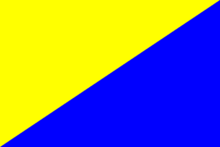imported>Memna imperia No edit summary |
imported>GeorgiosAdal mNo edit summary |
||
| Line 83: | Line 83: | ||
*[[File:Classlib.png]] [[Classical Liberalism|Ed Crane]] (1944-) [[File:Cball-US.png]] USA | *[[File:Classlib.png]] [[Classical Liberalism|Ed Crane]] (1944-) [[File:Cball-US.png]] USA | ||
*[[File:Jorg.png]] [[Bleeding-Heart Libertarianism|Jo Jorgensen]] (1957-) [[File:Cball-US.png]] USA | *[[File:Jorg.png]] [[Bleeding-Heart Libertarianism|Jo Jorgensen]] (1957-) [[File:Cball-US.png]] USA | ||
*[[File: | *[[File:BrazilNovo.png]] [[Libertarian Conservatism|João Amoêdo]] (1962-) [[File:Cball-Brazil.png]] Brazil | ||
*[[File:Libcon.png]] [[Libertarian Conservatism|Rand Paul]] (1963-) [[File:Cball-US.png]] USA | *[[File:Libcon.png]] [[Libertarian Conservatism|Rand Paul]] (1963-) [[File:Cball-US.png]] USA | ||
*[[File:Libertarian.png]] [[Libertarianism|Axel Kaiser]] (1981-) [[File:Cball-Chile.png]] Chile | *[[File:Libertarian.png]] [[Libertarianism|Axel Kaiser]] (1981-) [[File:Cball-Chile.png]] Chile | ||
}} | }} | ||
[[File:Cball-EU.png]] '''Europe''' {{Collapse| | [[File:Cball-EU.png]] '''Europe''' {{Collapse| | ||
Revision as of 23:47, 20 May 2023
Script error: No such module "Mbox".
Minarchism is a political ideology which seeks to establish a form of governance in which state intervention is as minimal as possible while still maintaining a broadly functional society of which the general standard for "functional" varies from person to person. This form of governance is called a Minarchy or a Night-Watchman State.
Minarchism concept is generally considered as being alligned with laissez-faire ![]() capitalist economic thought(and the version this page manages) although not necessarily with some
capitalist economic thought(and the version this page manages) although not necessarily with some ![]() libertarian socialists embracing the concept, forming
libertarian socialists embracing the concept, forming ![]() minarcho-socialism.
minarcho-socialism.
History
Victorian Minarchy
By many historians Victorian ![]() Great Britain, or more specifically great britain from the time after the repeal of the corn laws in 1846 to the time before introduction of greater social reforms starting with the administration of
Great Britain, or more specifically great britain from the time after the repeal of the corn laws in 1846 to the time before introduction of greater social reforms starting with the administration of ![]() Benjamin Disraeli in the 1870's, continuing with the so-called people's budget of the
Benjamin Disraeli in the 1870's, continuing with the so-called people's budget of the ![]() liberal party in 1909-1910 with the final nail in the coffin being the First World War.
liberal party in 1909-1910 with the final nail in the coffin being the First World War.
Historian A.J.P. Taylor wrote:
Until August 1914 a sensible, law-abiding
Englishman could pass through life and hardly notice the existence of the state, beyond the post office and the policeman. He could live where he liked and as he liked. He had no official number or identity card. He could travel abroad or leave his country for ever without a passport or any sort of official permission. He could exchange his money for any other currency without restriction or limit. He could buy goods from any country in the world on the same terms as he bought goods at home. For that matter, a foreigner could spend his life in this country without permit and without informing the police. Unlike the countries of the
European continent, the state did not require its citizens to perform military service. An
Englishman could enlist, if he chose, in the regular army, the navy, or the territorials. He could also ignore, if he chose, the demands of national defence. Substantial householders were occasionally called on for jury service. Otherwise, only those helped the state who wished to do so. The
Englishman paid taxes on a modest scale: nearly £200 million in 1913-14, or rather less than 8 per cent of the national income.
A.J.P. Taylor, The Effects and Origins of the Great War
Historian Charles Townshed wrote:
Britain, however, with its strong tradition of minimal government — the 'night-watchman state' — vividly illustrated the speed of the shift [during World War I] from normalcy to drastic and all-embracing wartime powers like those contained in the Defence of the Realm Act
Charles Townshed, The Oxford History of Modern War p.14
Origins of the night-watchman state
The term "Night-Watchman State" or in German "Nachtwächterstaat" was coined by the Prussian ![]() social democrat Ferdinard Lassalle in a 1864 to criticise the classical liberal form of government, in which the state only exists to prevent theft instead of caring for the greater well-being of its citizens. The term picked up a popularity within various socialist circles in germany.
social democrat Ferdinard Lassalle in a 1864 to criticise the classical liberal form of government, in which the state only exists to prevent theft instead of caring for the greater well-being of its citizens. The term picked up a popularity within various socialist circles in germany.
In 1927 the Austrian praxeologist ![]() Ludwig von Mises responded to Lassalle's sentiment in his book
Ludwig von Mises responded to Lassalle's sentiment in his book ![]() Liberalism: In the Classical Tradition in which he effectively said "Yes" to Lassale, saying that a night-watchman state is no more ridiculous than a state so
Liberalism: In the Classical Tradition in which he effectively said "Yes" to Lassale, saying that a night-watchman state is no more ridiculous than a state so ![]() regulationist that it concerns itself with "the preparation of sauerkraut, with the manufacture of trouser buttons, or with the publication of newspapers".
regulationist that it concerns itself with "the preparation of sauerkraut, with the manufacture of trouser buttons, or with the publication of newspapers".
The
German
socialist, Ferdinand Lassalle, tried to make the conception of a government limited exclusively to this sphere appear ridiculous by calling the state constituted on the basis of
liberal principles the "night-watchman state." But it is difficult to see why the night-watchman state should be any more ridiculous or worse than the state that concerns itself with the preparation of sauerkraut, with the manufacture of trouser buttons, or with the
publication of newspapers. In order to understand the impression that Lassalle was seeking to create with this witticism, one must keep in mind that the
Germans of his time had not yet forgotten the state of the
monarchical despots, with its vast multiplicity of
administrative and
regulatory functions, and that they were still very much under the influence of the philosophy of
Hegel, which had elevated the state to the position of a divine entity. If one looked upon the state, with Hegel, as "the self-conscious moral, substance," as the "universal in and for itself, the rationality of the will," then, of course, one had to view as blasphemous any attempt to limit the function of the state to that of serving as a night watchman. It is only thus that one can understand how it was possible for people to go so far as to reproach
liberalism for its "hostility" or enmity towards the state. If I am of the opinion that it is inexpedient to assign to the government the task of operating railroads, hotels, or mines, I am not an "enemy of the state" any more than I can be called an enemy of sulfuric acid because I am of the opinion that, useful though it may be for many purposes, it is not suitable either for drinking, or for washing one's hands.
Ludwig von Mises, Liberalism: In the Classical Tradition, p.60
 Nozick and the Minarchist movement
Nozick and the Minarchist movement
W.I.P.
 5.10 model
5.10 model
5.10 - is a libertarian political party in Ukraine, that was founded during "Revolution of Dignity" in March, 2014. This party propose what they call "5.10 system" (by which they named party). "5.10 system" are propose a model with only two simple taxes: 10% - sociali security contribution, 5% - sales tax. Also, for big amount of time they were in support of preservation of governmental pension fund, but later on, party rejected this idea, in favour of private pension funds. They also support Ukraine joining NATO.
Hennadiy Balashov - is eccentric creator of the party. He was famous for many bizzare and sometimes contradictionary views, aspacially views on languege problem in Ukraine (he said, that people who fine you for advertising buisness in Ukraine should be beaten up by a rock, but also saying that he are trying to start to speak ukrainian in his personal life). In 2022 he flew Ukraine, because he faced accusation by a minor law violetion that he done 15 years ago. In 2023 he was accused in involving in a corruption schemes by his own party members.
Foundations
Personality and Behavior
Minarchism is often seen as ![]() Anarcho-Capitalism's less interesting, but more mature, older brother. He has a strong urge to defend himself (see picture above) from perceived aggression from statists and other enemies and is often preoccupied with enforcing the NAP, perhaps even more so than
Anarcho-Capitalism's less interesting, but more mature, older brother. He has a strong urge to defend himself (see picture above) from perceived aggression from statists and other enemies and is often preoccupied with enforcing the NAP, perhaps even more so than ![]() Libertarianism. Minarchism is also extremely passionate about property rights and protecting the free market from any government interference.
Libertarianism. Minarchism is also extremely passionate about property rights and protecting the free market from any government interference.
How To Draw

- Draw a ball.
- Draw a diagonal yellow line from the bottom left to the top right corner of the ball. Color the upper half of the ball yellow.
- Color the bottom half of the ball blue.
- Draw the eyes and you are done.
- (Optional) Draw a 12-Gauge Shotgun being held
| Color Name | HEX | RGB | |
|---|---|---|---|
| Yellow | #FFFF00 | 255, 255, 0 | |
| Blue | #0000FF | 0, 0, 255 | |
Relationships
Friends
 Anarcho-Capitalism - My brother, who's a bit crazier than me. His anarchism is a little misguided, but otherwise, we're identical.
Anarcho-Capitalism - My brother, who's a bit crazier than me. His anarchism is a little misguided, but otherwise, we're identical. Classical Liberalism - My grandfather's philosophy has greatly influenced my own.
Classical Liberalism - My grandfather's philosophy has greatly influenced my own. National Liberalism - My nationalist uncle, a bit statist sometimes.
National Liberalism - My nationalist uncle, a bit statist sometimes. Libertarianism - My dear best friend who is the less radical out of the
Libertarianism - My dear best friend who is the less radical out of the 

 club. I'm one of the main minority factions of the American Libertarian Party.
club. I'm one of the main minority factions of the American Libertarian Party. Reactionary Liberalism - My other reactionary cousin, while a bit statist, he can be pretty based.
Reactionary Liberalism - My other reactionary cousin, while a bit statist, he can be pretty based. Fiscal Conservatism -
Fiscal Conservatism -  Economic Conservatism is pretty based.
Economic Conservatism is pretty based. Libertarian Conservatism - A truly small government conservative.
Libertarian Conservatism - A truly small government conservative. National Libertarianism - You too understand the importance of limited government.
National Libertarianism - You too understand the importance of limited government.
Frenemies
 Hayekism - I don't hate you as much as
Hayekism - I don't hate you as much as  ancaps do but your tax policy is pretty statist.
ancaps do but your tax policy is pretty statist. Libertarian Monarchism - Why does the "night watchman state" have to be led by a watchman king?
Libertarian Monarchism - Why does the "night watchman state" have to be led by a watchman king? Conservatism - A great business partner but he's just a bit too statist.
Conservatism - A great business partner but he's just a bit too statist. National Conservatism &
National Conservatism &  Right-Wing Populism - Too statist although many of you are kinda based
Right-Wing Populism - Too statist although many of you are kinda based 





 .
. Entire LibLeft quadrant - Misguided at best. Property is not theft.
Entire LibLeft quadrant - Misguided at best. Property is not theft. Minarcho-Socialism - My misguided son.
Minarcho-Socialism - My misguided son.
Enemies
 Entire AuthCenter quadrant - NO STEP ON SNEK!
Entire AuthCenter quadrant - NO STEP ON SNEK! Entire AuthLeft quadrant - Fuck. Off.
Entire AuthLeft quadrant - Fuck. Off.
Further Information
For overlapping political theory see: ![]() Libertarianism,
Libertarianism, ![]() Classical Liberalism,
Classical Liberalism, ![]() Objectivism,
Objectivism, ![]() Georgism
Georgism
Literature
- Anarchy, State and Utopia by
 Robert Nozick
Robert Nozick - Anarchism/Minarchism: Is a Government a Part of a Free Country? by
 Roderick T. Long and Tibor R. Machan
Roderick T. Long and Tibor R. Machan - Liberalism: In the Classical Tradition by
 Ludwig Von Mises
Ludwig Von Mises - The Man versus the State by
 Herbert Spencer
Herbert Spencer
Wikipedia
- Night-watchman state
- Limited government
- Small government
- Debates within libertarianism
- Robert Nozick
YouTube
Channels
Videos
- What Minarchists Actually believe by Arcion
- Minarchy/Night-watchmen state by Politics and international relations as basics
Online Communities
Gallery
-
-
Unknown title by TheLegend2T]
-
-
Credit:
 TheLegend2T, Source
TheLegend2T, Source
-
Dylanowich's Avatar
-
By:
-
| | |
Template:Navbox/Prefixes pl:Minarchizm tr:Minarşizm
- ↑ List includes both people who wanted night watchman state and genuine minarchists influenced by Austrian School and Nozick.

![Unknown title by TheLegend2T]](/images/thumb/Legend2T-Minanarchy.png/120px-Legend2T-Minanarchy.png)




